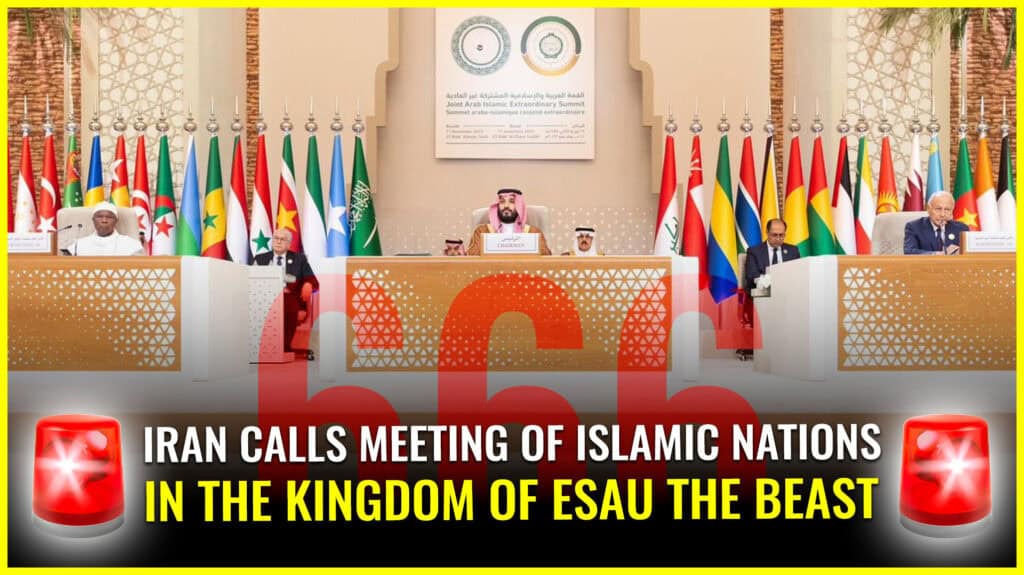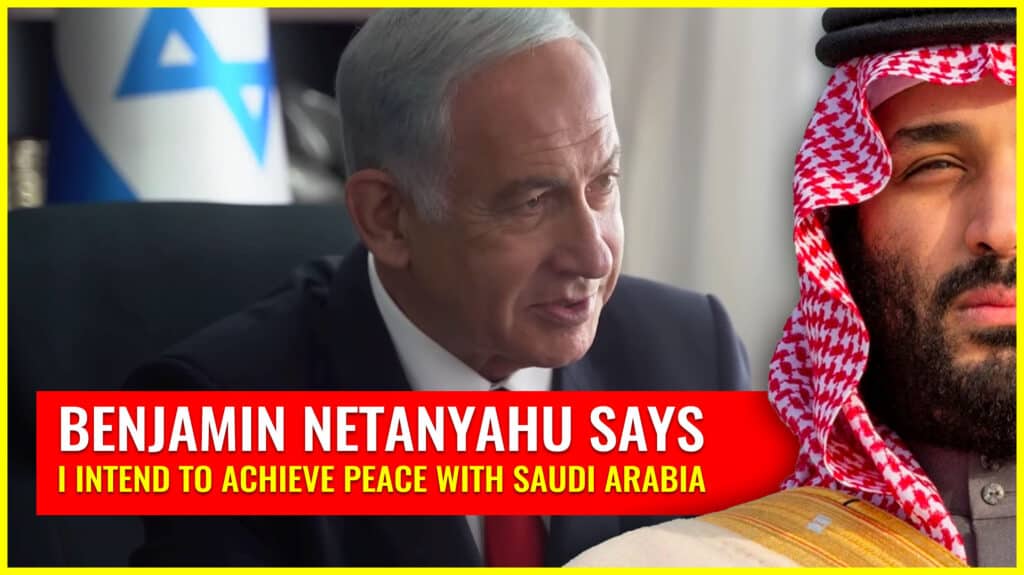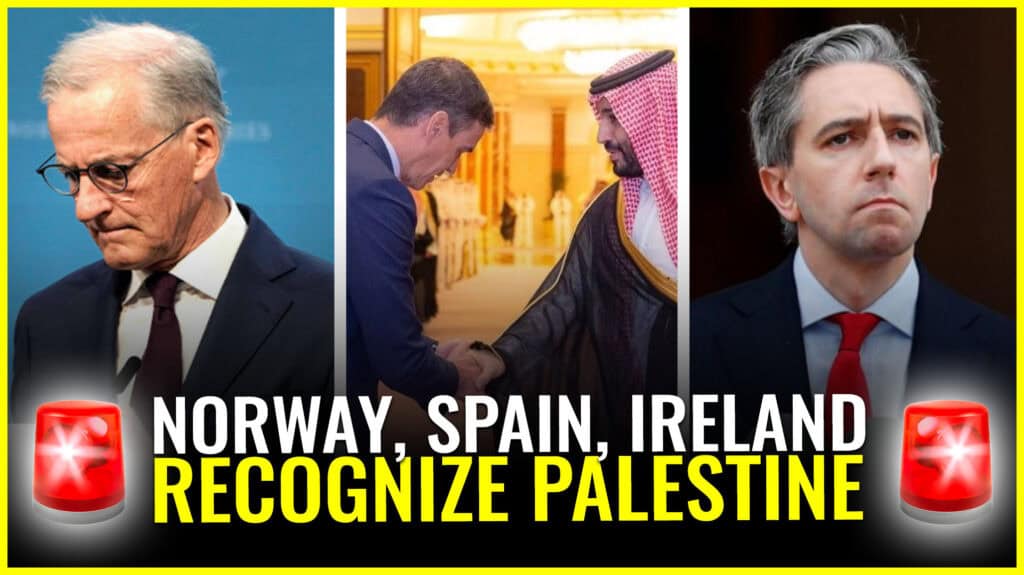Scripture to consider before the news:
“And he shall confirm the covenant with many for one week: and in the midst of the week he shall cause the sacrifice and the oblation to cease, and for the overspreading of abominations he shall make it desolate, even until the consummation, and that determined shall be poured upon the desolate.”
The he spoken of that will confirm the covenant is the prince of the covenant from the book of Daniel which is the beast from the book of Revelation. This prince is looking to be Prince Mohammed bin Salman of THE KINGDOM of Saudi Arabia.
This is what gets the world into the last days and what gets Israel into their final prophetic 70th week spoken of by the prophet Daniel.

The Abraham Accords, Coronavirus and global economic collapse and unrest is preparing the way for the kingdom of the beast which is the new world order and his mark to buy or sell with which will officially come 42 months after Saudi Arabia and Israel normalize.
Once MBS confirms the covenant with Israel, the sin cursed world will have approximately seven years before the second coming of the Lord Jesus Christ. You can start the clock for the FINAL COUNTDOWN when Saudi Arabia and Israel normalize.
This is it folks. Get ready for what the apostle Peter calls “the end of all things”.
Now unto the news:
US Jewish leaders visit Saudi Arabia to advance Israel normalization.
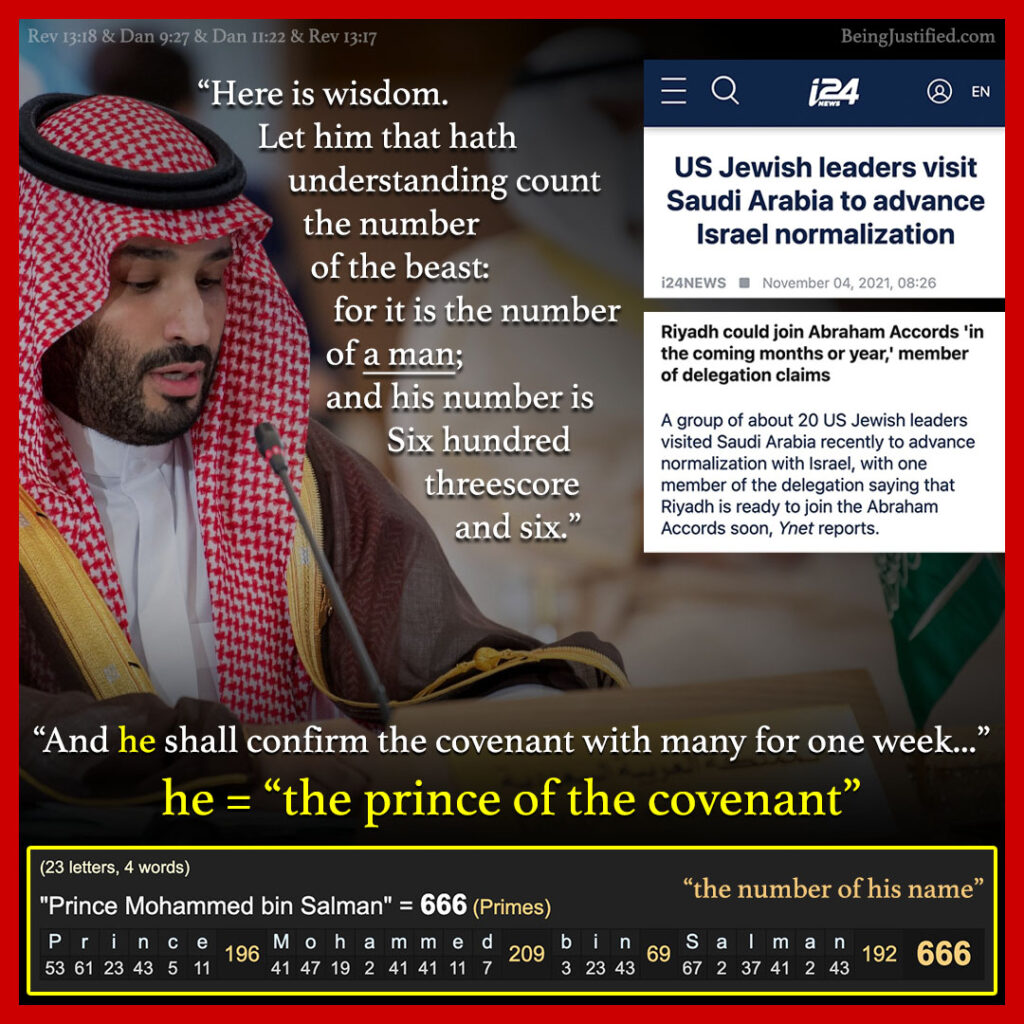
Riyadh could join Abraham Accords ‘in the coming months or year,’ member of delegation claims
A group of about 20 US Jewish leaders visited Saudi Arabia recently to advance normalization with Israel, with one member of the delegation saying that Riyadh is ready to join the Abraham Accords soon.
The group visited Riyadh at the invitation of the Saudis and with the blessing of the Biden administration, according to the report.
They met with senior officials, including at least six government ministers and members of the House of Saud ruling royal family.
Jewish-American businessman Phil Rosen, a member of the delegation who is a personal friend of former Israeli prime minister and Likud opposition leader Benjamin Netanyahu, said that the Kingdom could join the Abraham Accords soon.
“The Saudis are preparing their citizens for normalization with Israel,” Rosen said. “They see Israel as a regional power and admire its ability to defend itself.”
Added Rosen: “I would not be surprised if we see normalization between Saudi Arabia and Israel in the coming months or year.”
The Biden administration has reportedly been urging the Saudis to establish diplomatic ties with the Jewish state.
Last year, the United Arab Emirates and Bahrain signed the Abraham Accords with Israel, with the later additions of Morocco and Sudan.
In public statements, the Saudis say that the Palestinian issue must be resolved before they are ready to normalize relations with Israel. However, Rosen said that a Palestinian state is not a condition for making peace with Israel and that the Saudis are “waiting for the right moment.”
Let us see a quick news clip on this matter:
In related news:
A group of eight US lawmakers announced this week the creation of a bipartisan Abraham Accords Caucus.

A group of eight US lawmakers – four Democrats and four Republicans, half from the Senate and half from the House – announced this week the creation of a bipartisan Abraham Accords Caucus to work toward strengthening the existing agreements and expanding them to other Muslim countries.
Why is this good news? Because it demonstrates bipartisan support for Israel in Washington – something always good for everyone to see, especially at a time when anti-Israel Democratic progressives are frequently in the news – and because it could give a push toward getting other countries to join the accords.
The accords, brokered by the Trump administration, were signed in September 2020 between Israel and the United Arab Emirates and Bahrain. Sudan and Morocco followed shortly thereafter, and initially there was expectation that several other countries would normalize ties with Israel and join this framework.
But then US president Donald Trump lost the 2020 election, and a new president – Joe Biden – came into office. Biden seemed from the very beginning less intent than Trump on inducing countries to join the framework – such as by selling F-35s to the UAE, recognizing Morocco’s claims over Western Sahara, and taking Sudan off its list of countries supporting terrorism.
Furthermore, with COVID surging, inflation rising, massive domestic legislation pending, Iran talks calling and tensions with Russia and China growing, this was not an issue near the top of the Biden administration’s agenda.
For the first eight months of his first year in office, Biden and other administration officials balked at even using the Trump administration-coined term for the agreements, the “Abraham Accords” – as if to do so would acknowledge that Trump got anything right.
This, however, is no longer the case, and in a Zoom meeting with diplomats from Israel, the UAE, Bahrain and Morocco on the anniversary of the accords last September, Secretary of State Antony Blinken said “this administration will continue to build on the successful efforts of the last administration to keep normalization marching forward.”
For countries on the fence, wondering whether it’s in their interest to take the leap and normalize ties with Israel, the existence of a bipartisan caucus may give them confidence that if they do make the move, they will have earned goodwill points with American lawmakers, something that could serve their countries in good stead in the future.
Among the countries that have been mentioned as next in line to join the process are the Comoros, Maldives, Indonesia, Tunisia and Oman. Saudi Arabia is the biggest prize.
While the relations between Israel and the UAE, Bahrain and Morocco are developing nicely and have already brought about significant changes in the Mideast, ties with Sudan are stuck because of the volatile domestic situation there, and the Abraham Accords “peace train” has stalled before reaching its next station.
In other news:
Saudis seek ‘serious’ approach to Iran nuclear program, suggest joining negotiations.
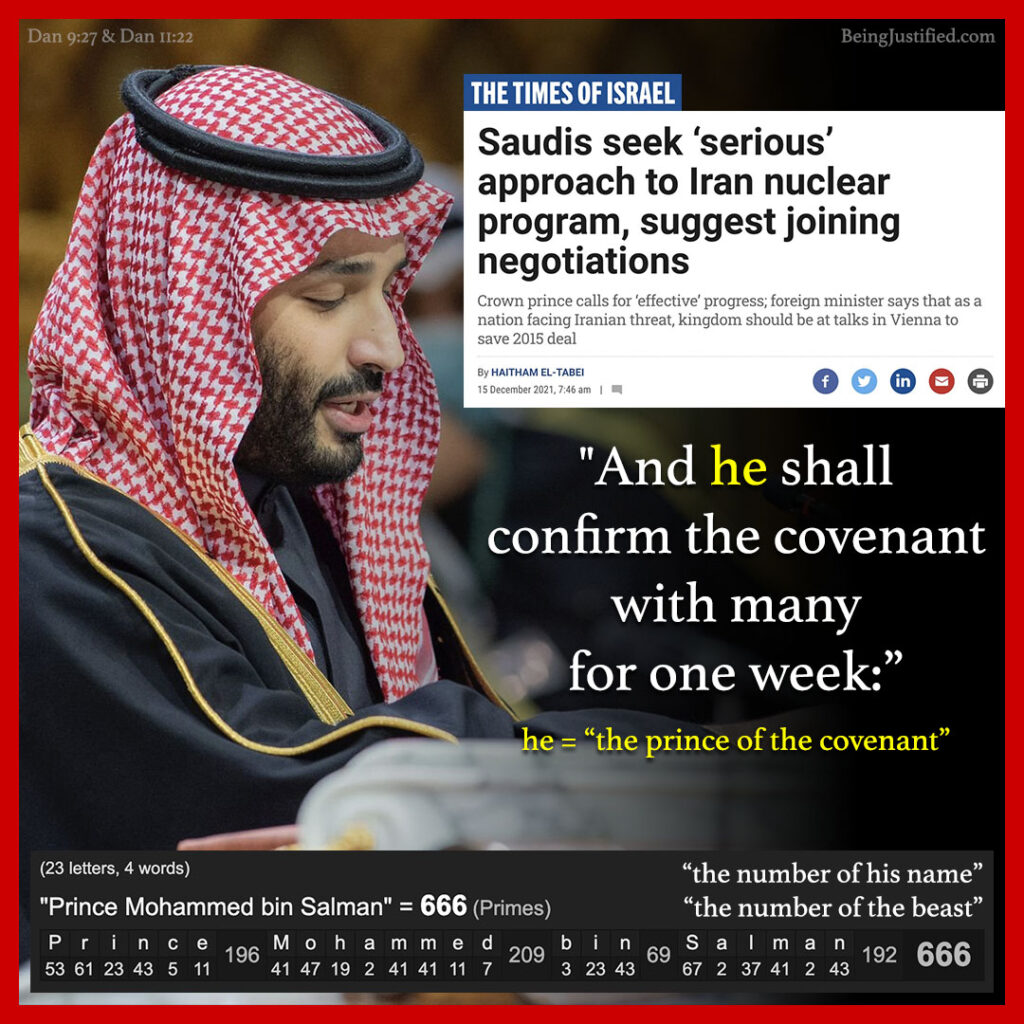
Saudi Crown Prince Mohammed bin Salman called for an “effective and serious” approach to Iran’s ballistic and nuclear program, during a Gulf summit in Riyadh.
The de facto ruler was representing his country at the Gulf Cooperation Council meeting, which brought together Saudi Arabia, the United Arab Emirates, Bahrain, Kuwait, Oman and Qatar.
Saudi authorities have not explained the absence of his 85-year-old father King Salman.
“It is important to have an effective and serious approach to Iran’s nuclear and ballistic program,” the crown prince told the summit.
Last month, the United States and GCC countries accused Iran of causing a nuclear crisis and destabilizing the Middle East with ballistic missiles and drones.
They urged the Iranian administration to seize the “diplomatic opportunity” stemming from the resumption of talks in Vienna aimed at salvaging a 2015 nuclear agreement between Iran and world powers.
In 2018, former US president Donald Trump pulled the US out of the accord, which provided Iran with sanctions relief in return for curbs on its nuclear program, prompting Tehran to begin rolling back on its commitments.
After a five-month pause, the talks resumed on November 29 but are hanging in the balance.
Prince Mohammed called for “further coordination of efforts in the face of multiple challenges” and emphasized the need to “unify positions to strengthen the role” of the GCC on a regional and international level.
The summit come almost a year after Saudi Arabia, the UAE, Bahrain and Egypt agreed to restore relations with Qatar, after severing ties with Doha in 2017.
The countries had claimed Qatar was too close to Iran and backed radical Islamist groups, allegations Doha has always denied.
Shiite-majority Iran and its Sunni rival Saudi Arabia have held several rounds of talks since April aimed at improving ties since they cut relations in 2016.
Things to consider:
You see why the scripture declares that he will confirm the covenant with many, it won’t just be Israel, but many and that could include Iran in the mix from what we are seeing with this constant talk on nuclear Iran.
In related news:
Israel not bound by any nuclear deal with Iran, Bennett says.
Israel will take action against Iran if it needs to, regardless of any nuclear agreement between Tehran and world powers, the Israeli prime minister warned on Monday.
Naftali Bennett spoke as talks continued in Vienna on reviving the Joint Comprehensive Plan of Action, the 2015 deal to curb Iran’s nuclear program in return for the lifting of economic sanctions.
“Regarding the nuclear talks in Vienna, we are certainly concerned. It is important for me to say here clearly and unequivocally: Israel is not a party to the agreements,” Bennett said.
“Israel is not bound by what will be written in the agreements, if they are signed, and Israel will continue to maintain full freedom of action anywhere any time, with no constraints.”
Negotiations to salvage the nuclear deal resumed in late November after they were suspended in June as Iran elected a new, hard-line president.
The deal — agreed by Iran, the US, China, Russia, Britain, France and Germany — offered Tehran sanctions relief in exchange for curbs on its nuclear programme. It collapsed in 2018 when the US withdrew and Donald Trump reimposed crippling economic sanctions. Tehran responded by enriching fissile uranium to levels prohibited under the agreement, and experts say it is now weeks away from weapons grade.
Israel has broadly opposed a restoration of the 2015 agreement but high-ranking officials — notably Defense Minister Benny Gantz and Foreign Minister Yair Lapid — have indicated the country could support a deal that it viewed as offering definitive checks on Iran’s nuclear ambitions.
The US has participated only indirectly in the Vienna talks, which seek to bring Washington back inside the accord and to ensure Iran re-adheres to its own commitments.
Britain, France and Germany have said that the window for concluding a deal was “weeks, not months,” because of the speed of Iran’s nuclear enrichment.
Lastly in the news:
Saudi royal family are descendants of Jews who fought Muhammad says Iranian general.

The commander of Iran’s navy said in a speech on January 7 that the modern-day Saudi Arabian royal family are descendants of Jews who fought early Muslim tribes.
Scripture to consider:
“Woe to the idol shepherd that leaveth the flock! the sword shall be upon his arm, and upon his right eye: his arm shall be clean dried up, and his right eye shall be utterly darkened.”
The beast will be slain of a sword and rise again if we look at the scripture from Zechariah in light of what is written in Revelation from the apostle John.
“And deceiveth them that dwell on the earth by the means of those miracles which he had power to do in the sight of the beast; saying to them that dwell on the earth, that they should make an image to the beast, which had the wound by a sword, and did live.”
42 months after the prince and beast confirms the covenant with Israel will he be slain of a sword (just like the sword on the Saudi flag) and have his mortal wound healed by the devil.
We are seeing the satanic seed plot on pinning the royal family of Saud as Jews so that a Muslim with a sword will assassinate MBS but he will rise again. Judas will enter MBS because Judas Iscariot who went to his own place in the pit will be the eighth king of the 7 kings of Saudi Arabia.
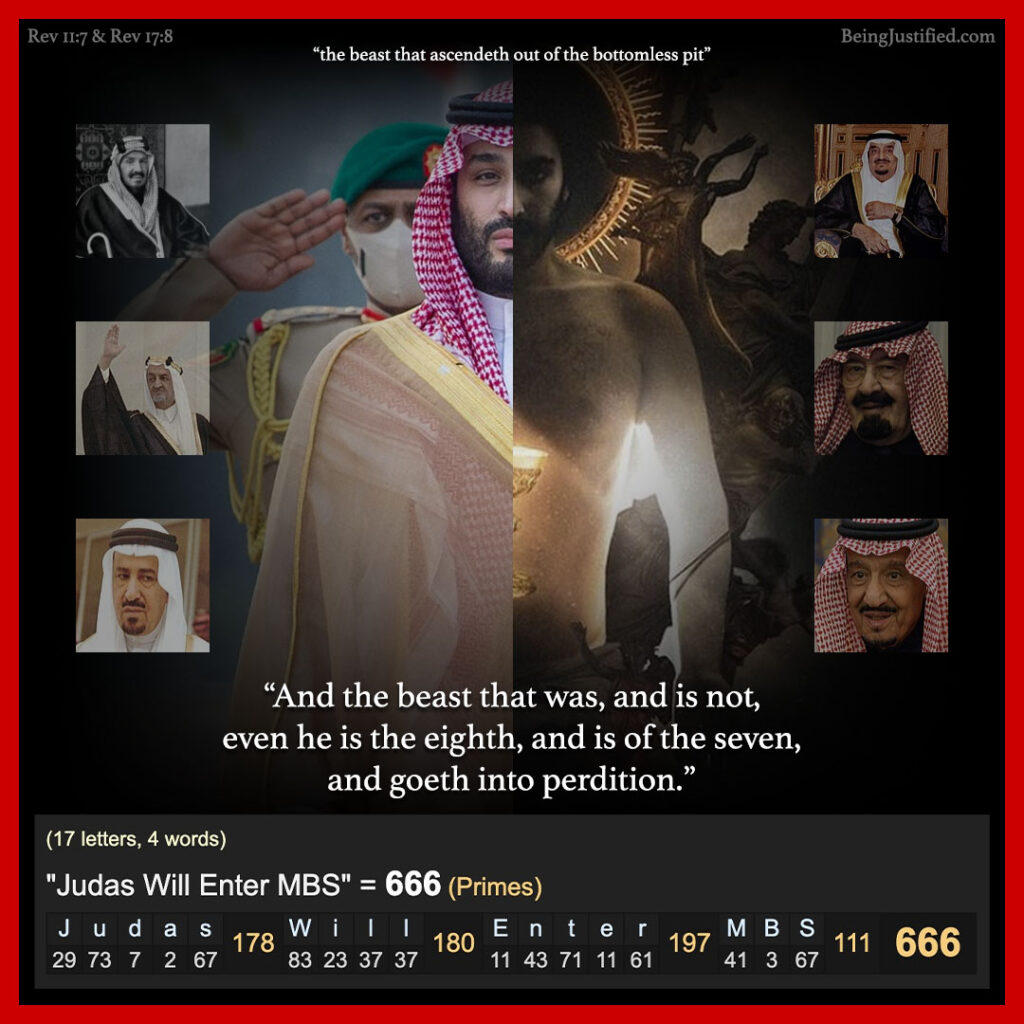
Back to the news:
The commander of Iran’s Islamic Revolutionary Guard Corps Navy said on January 7 that the ruling royal family of Saudi Arabia were actually Jewish, and that their conflict with Iran harkens back to 7th century battles between Muslim and Jewish tribes.
The speech was aired on Iran’s Bushehr TV and translated by MEMRI, the Middle East Media Research Institute.
“We cannot bear to see injustice in a Muslim country that is perpetrated by the Zionists and the seed of the Jews,” the commander, Gen. Alireza Tangsiri, says in a video recording of the speech.
“[We cannot bear to see] that Muslims are being slaughtered by people who call themselves Christians but are not,” he added, seeming to refer to the US’s assassination of former IRGC Quds Force commander Qassem Soleimani.
“These are the very same Jews — and I’d better say Zionists — whose hearts have never aligned with Islam, and even with the Prophet in his time,” he then said, probably in reference to Saudi Arabia.
“The grudge that the enemies harbored towards Hajj [Qassem] Soleimani resembles their grudge towards Imam Hussein in Karbala,” he said, referring to the son of Ali, the first imam of Shia Muslims, and to the battle in which he was killed, which became a formative event for Shia Islam.
“This grudge still exists,” he said.
The Iranian leadership is Shia, as opposed to that of Saudi Arabia, which is Sunni.
The Iranian leadership is Shia, as opposed to that of Saudi Arabia, which is Sunni.
Iranian rhetoric against the US and Israel has been more fiery than usual in recent weeks due in part to the two-year anniversary of the January 3, 2020 killing of Soleimani in a US drone strike in Iraq.

